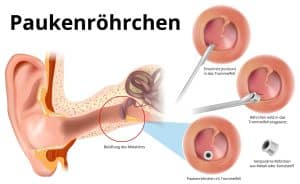Guide to Ear and Nose Issues
The Guide to Ear and Nose Issues is a complex organ responsible for both hearing and balance. When ear issues arise, they can significantly impact an individual’s quality of life. Common ear problems include ear infections, hearing loss, tinnitus, and earaches. Ear infections can affect the outer ear (otitis externa), middle ear (otitis media), or inner ear (otitis interna), each presenting with distinct symptoms. Symptoms may include pain, discharge, itching, redness, and in severe cases, fever and hearing difficulties.

Causes of Ear Issues
Ear problems can stem from various causes. Ear infections are often bacterial or viral in nature, with factors such as excessive moisture, foreign objects, and allergies contributing to their development. Hearing loss may result from aging, noise exposure, genetic predisposition, or trauma. Tinnitus, characterized by ringing in the ears, can be linked to loud noise exposure, medication side effects, or underlying health conditions like hypertension or ear bone changes.
Managing Ear Issues Effectively
Treatment Options
Effective management of ear problems depends on accurate diagnosis and appropriate treatment. Ear infections may require antibiotics, antifungals, or ear drops, depending on the type and severity. Hearing loss treatments range from hearing aids to cochlear implants for profound cases. Tinnitus management involves sound therapy, medication, or cognitive behavioral therapy to alleviate symptoms. Preventive measures such as ear protection in noisy environments and regular ear hygiene are crucial for maintaining ear health.
Understanding Nose Issues
The nose plays a vital role in respiration, smell perception, and immune defense. Nose issues encompass a broad spectrum of conditions, including sinusitis, allergic rhinitis, nasal polyps, and deviated septum.

Common Symptoms
Nasal congestion, runny nose, facial pain or pressure, loss of smell, and postnasal drip are hallmark symptoms of nose issues. Sinusitis presents with thick nasal discharge, fever, fatigue, and headaches, while allergic rhinitis manifests as sneezing, itchy eyes, and watery nasal discharge.
Causes of Nose Issues
Nose problems can be acute or chronic, triggered by viral infections, bacterial infections, allergens like pollen or pet dander, structural abnormalities, or environmental irritants such as smoke or chemical fumes.
Effective Management of Nose Issues
Treatment and Prevention
Managing nose issues involves symptomatic relief and long-term management strategies. Sinusitis may require antibiotics, nasal decongestants, or steroid nasal sprays to reduce inflammation. Allergic rhinitis treatments include antihistamines, nasal corticosteroids, and allergen avoidance. Nasal polyps might necessitate surgical removal in severe cases, while deviated septum correction improves nasal airflow and quality of life.
Conclusion
Understanding ear and nose issues is crucial for timely diagnosis and effective management. Whether dealing with ear infections, hearing loss, tinnitus, sinusitis, allergic rhinitis, or other conditions, early intervention and comprehensive care are essential. By addressing symptoms, causes, and treatment options in a structured manner, individuals can navigate these health challenges with greater ease and confidence.